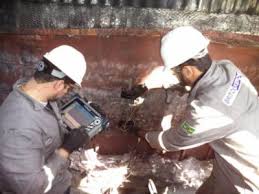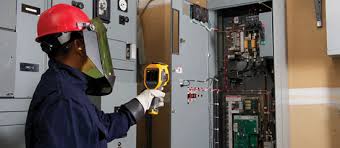Enhancing Safety and Quality: Third-Party Inspection for Mechanical Systems
Third-party inspection for mechanical systems is an important process in ensuring the safety and quality of various mechanical systems. With the growing emphasis on quality assurance and compliance with safety standards, third-party inspection plays a crucial role in identifying potential risks and ensuring the proper functionality of mechanical systems. In this article, we will explore the significance of third-party inspection for enhancing safety and quality, particularly in the context of mechanical systems. By examining the role and benefits of third-party inspection, we will uncover how this process contributes to the overall reliability and performance of mechanical systems.
The use of third-party inspection for mechanical systems involves hiring an independent and impartial inspection company to assess the safety and quality of mechanical equipment and systems. This can include HVAC systems, industrial machinery, construction equipment, and more. Third-party inspectors are trained and certified to identify potential hazards, defects, or non-compliance with industry standards and regulations. By outsourcing inspections to a third party, businesses can gain assurance that their mechanical systems meet necessary safety and quality requirements, ultimately reducing the risk of accidents, equipment failure, and regulatory fines. Additionally, third-party inspections can provide valuable insights and recommendations for improving the overall performance and longevity of mechanical systems.
Third-party inspection for mechanical systems involves hiring an independent inspection company to assess the safety and quality of mechanical equipment. This can include HVAC systems, industrial machinery, construction equipment, and more. Third-party inspectors are trained to identify potential hazards, defects, or non-compliance with industry standards and regulations. By outsourcing inspections to a third party, businesses can gain assurance that their mechanical systems meet necessary safety and quality requirements, ultimately reducing the risk of accidents, equipment failure, and regulatory fines. Additionally, third-party inspections can provide valuable insights and recommendations for improving the overall performance and longevity of mechanical systems.
Ensuring Quality Control: The Importance of Third-Party Inspection for Mechanical Systems

Ensuring quality control through third-party inspection is essential for mechanical systems to reduce the risk of malfunction or failure. Third-party inspection companies provide unbiased and expert validation of the mechanical systems, ensuring that they meet industry standards and regulatory requirements. These inspections also help in identifying potential issues early on, allowing for necessary corrections and preventing costly rework or repairs in the future. Overall, third-party inspection plays a vital role in ensuring the safety, reliability, and compliance of mechanical systems.
The Role of Third-Party Inspection in Mechanical System Safety

Third-party inspection plays a crucial role in ensuring the safety and reliability of mechanical systems. These inspections are carried out by independent organizations or individuals who are not directly involved in the design, manufacture, or operation of the equipment. Their main objective is to verify that the mechanical systems comply with relevant safety standards, codes, and regulations. The role of third-party inspection in mechanical system safety includes conducting thorough inspections of equipment and components to identify any potential hazards or deficiencies. This can help prevent accidents and equipment failures that could result in injury, damage, or downtime. Third-party inspectors also assess the compliance of mechanical systems with industry standards and specifications, ensuring that they meet the necessary quality and performance requirements. Furthermore, third-party inspection provides an unbiased evaluation of mechanical systems, offering an independent perspective on their safety and reliability. This can be particularly valuable for organizations seeking to ensure the quality and safety of their equipment, as it can help identify and address any issues or non-compliance with standards. Overall, the role of third-party inspection in mechanical system safety is essential for verifying the integrity and safety of equipment, reducing the risk of accidents, and ensuring compliance with industry regulations and standards.
Why Third-Party Inspection is Essential for Mechanical System Reliability

Third-party inspection is essential for mechanical system reliability because it provides an impartial evaluation of the equipment and processes. These inspections are conducted by independent organizations or individuals who have no vested interest in the outcome of the inspection. This ensures that the evaluation is unbiased and accurate, helping to identify any potential issues or deficiencies in the mechanical systems. By having a third-party inspection, companies can gain a comprehensive understanding of the reliability and safety of their mechanical systems. This can help in preventing potential failures or malfunctions, which can lead to costly repairs, downtime, or even safety hazards. Additionally, third-party inspections can provide valuable insights into opportunities for improvement and optimization of the mechanical systems, ultimately leading to increased reliability and efficiency. Furthermore, third-party inspections can also help companies in meeting regulatory compliance and industry standards, ensuring that their mechanical systems are operating in accordance with the required guidelines. This can help in avoiding penalties, legal issues, and reputational damage due to non-compliance. In summary, third-party inspection is essential for mechanical system reliability as it provides an unbiased evaluation, helps in preventing failures and hazards, identifies areas for improvement, and ensures compliance with regulations and standards.
Benefits of Utilizing Third-Party Inspection for Mechanical Systems

Some benefits of utilizing third-party inspection for mechanical systems include: 1. Expertise: Third-party inspectors are often highly skilled and experienced professionals who bring valuable expertise and a fresh perspective to the inspection process. 2. Objectivity: Third-party inspectors are independent and unbiased, which helps ensure that the inspection is conducted without any conflicts of interest or preconceived notions. 3. Compliance: Third-party inspectors are well-versed in relevant industry standards and regulations, and can help ensure that the mechanical systems comply with all applicable requirements. 4. Quality assurance: By conducting thorough and rigorous inspections, third-party inspectors can help identify potential issues and ensure that the mechanical systems meet high quality standards. 5. Risk management: Third-party inspections can help identify and mitigate potential risks and liabilities associated with the mechanical systems, helping to avoid costly downtime and repairs in the future. Overall, utilizing third-party inspection for mechanical systems can provide a valuable independent assessment and assurance of the systems' quality, safety, and compliance.
How Third-Party Inspection Improves Efficiency in Mechanical Systems
Third-party inspection improves efficiency in mechanical systems by ensuring that all components meet specific quality and safety standards. By having independent inspectors review and verify equipment and components, potential issues are identified and corrected early on, preventing costly disruptions and delays in the future. This helps to streamline the overall operation of the mechanical system and reduces the likelihood of unexpected failures or breakdowns. Additionally, third-party inspection provides impartial and unbiased evaluations, which can help to identify areas for improvement and optimization within the system. By promoting a proactive approach to maintenance and quality control, third-party inspection ultimately contributes to increased efficiency and reliability in mechanical systems.
Best Practices for Third-Party Inspection of Mechanical Systems
Best practices for third-party inspection of mechanical systems include ensuring the inspector has the necessary qualifications and experience, clearly defining the scope of work and inspection criteria, and providing access to all necessary documentation and equipment. It is also important to establish a clear communication protocol and timeline for the inspection process, and to review and verify the findings with the inspector before finalizing the report. Additionally, following up on any corrective actions and addressing any discrepancies in a timely manner is crucial for maintaining the integrity and reliability of the inspection process.
The Impact of Third-Party Inspection on Mechanical System Performance
Third-party inspection of mechanical systems has a significant impact on their performance. These inspections ensure that the systems are designed, installed, and operated according to industry standards and regulations. They also help identify potential issues and defects that can affect the performance and reliability of the systems. By identifying and addressing these issues early on, third-party inspections can help prevent costly downtime and repairs, and ultimately improve the overall performance and lifespan of mechanical systems. Additionally, third-party inspection reports can serve as valuable documentation to demonstrate compliance with regulatory requirements and to provide assurance to stakeholders about the quality and safety of the mechanical systems. Overall, the impact of third-party inspection on mechanical system performance is crucial in ensuring their reliability, efficiency, and safety.
Choosing the Right Third-Party Inspection Services for Mechanical Systems
When choosing the right third-party inspection services for mechanical systems, it is important to consider the specific expertise and experience of the inspection company in the mechanical field. Look for a company that has a proven track record of inspecting similar mechanical systems and equipment. Additionally, consider the accreditation and certifications of the inspection company, as well as their reputation within the industry. It is also important to ensure that the inspection company's services align with the specific requirements and standards of the mechanical systems being inspected. Finally, consider the level of customer service and support offered by the inspection company, as well as their ability to provide thorough and detailed inspection reports. By thoroughly evaluating these factors, you can choose the right third-party inspection services for your mechanical systems.
تعليقات
إرسال تعليق